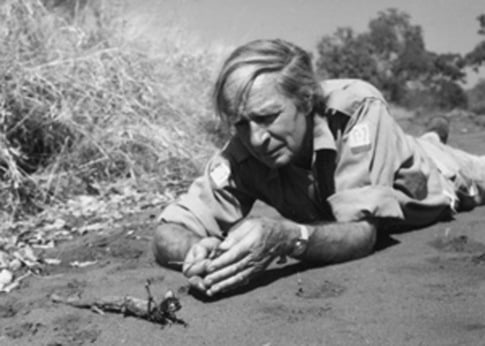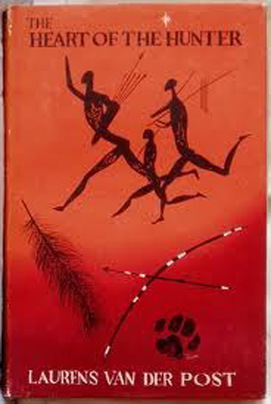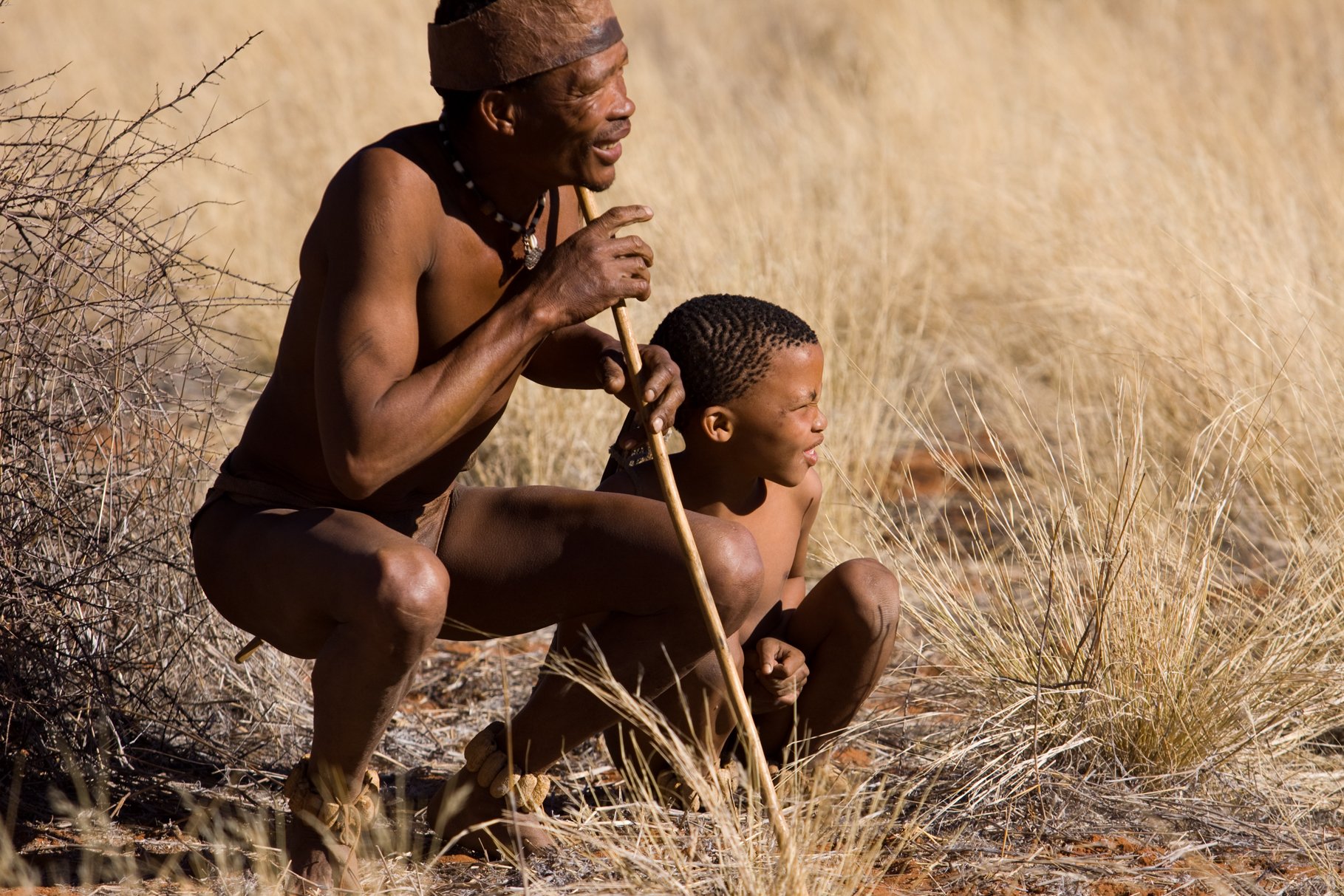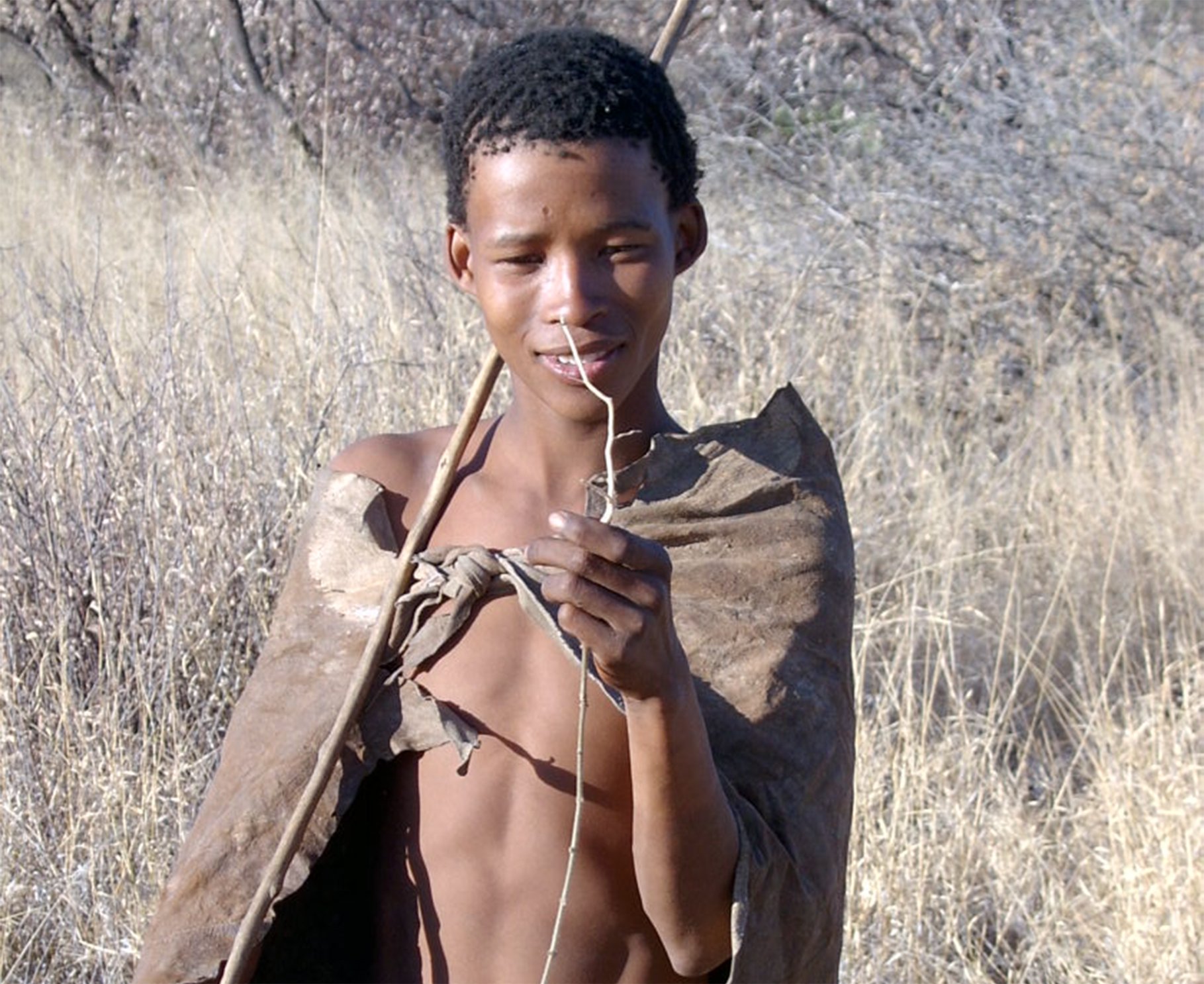The critical role Sir Laurens van der Post’s writings about the Khoisan (Bushmen) played in inspiring Jeremy Griffith’s biological explanation of the human condition
For all of us in the World Transformation Movement it is very special that Reggie is of Khoisan (Bushmen) descent, because it was the inspiration of the relative innocence of the Khoisan that inspired Sir Laurens van der Post (1906–1996) to recognise the truth of the original innocence of the human race, which in turn was of crucial importance to Jeremy Griffith as a young man because it confirmed for him the truth of the original innocence of humankind.
As Jeremy wrote in FREEDOM, this description by Sir Laurens of his vision of starting the process of reconciling the human condition was all-meaningful to Jeremy, ‘I had a private hope of the utmost importance to me. The Bushman’s physical shape combined those of a child and a man: I surmised that examination of his inner [relatively innocent] life might reveal a pattern which reconciled the spiritual opposites in the human being and made him whole…it might start the first movement towards a reconciliation’ (The Heart of the Hunter, 1961, p.135 of 233). It was so meaningful to Jeremy because what Sir Laurens wrote did ‘start the first movement towards a reconciliation’ — it gave Jeremy the support he needed to synthesise the explanation of the human condition.
In short, Sir Laurens’s writings prepared the way for our species’ freedom.
So the whole dynasty of this breakthrough understanding of the human condition is from the Khoisan first, to Sir Laurens’s writing, and from there to achieving the ‘reconciliation’ of our species’ good-and-evil-conflicted human condition, ‘reconciled the spiritual opposites in the human being and made him whole’ that Sir Laurens ‘hope[d]’ for.

Sir Laurens observing a praying mantis during the making of the 1956 BBC series The Lost World of the Kalahari (filmed by Jonathan Stedall)
These are some of the extraordinarily honest statements from Sir Laurens’s books that so inspired Jeremy:

In The Heart of the Hunter (1961), Sir Laurens wrote that ‘mere contact with twentieth-century life seemed lethal to the Bushman. He was essentially so innocent and natural a person that he had only to come near us for a sort of radioactive fall-out from our unnatural world to produce a fatal leukaemia in his spirit’ (p.111 of 233). In The Heart of the Hunter Sir Laurens also wrote that ‘There was indeed a cruelly denied and neglected first child of life, a Bushman in each of us’ (p.126); and on the last page: ‘All this became for me, on my long journey home by sea, an image of what is wanted in the spirit of man today. We live in a sunset hour of time. We need to recognize and develop that aspect of ourselves of which the moon bears the image. It is our own shy intuitions of renewal, which walk in our spiritual night as Porcupine walked by the light of the moon, that need helping on the way. It is as if I hear the wind bringing up behind me the voice of Mantis, the infinite in the small, calling from the stone age to an age of men with hearts of stone, commanding us with the authentic voice of eternal renewal: “You must henceforth be the moon. You must shine at night. By your shining shall you lighten the darkness until the sun rises again to light up all things for men”’ (p.233).
Yes, we live in the immensely innocence-destroyed, corrupted, ‘hearts of stone’, ‘sunset hour of time’, and the only way to relieve ourselves of this horrific condition was to find the redeeming understanding of it, which only a denial-free, truthful, ‘authentic’ approach could achieve and, by so doing, ‘light up all things for men’.


Elsewhere in his writings about the Khoisan (Bushmen), Sir Laurens wrote of ‘This shrill, brittle, self-important life of today is by comparison a graveyard where the living are dead and the dead are alive and talking [through our soul] in the still, small, clear voice of a love and trust in life that we have for the moment lost…[There was a time when] All on earth and in the universe were still members and family of the early race seeking comfort and warmth through the long, cold night before the dawning of individual consciousness in a togetherness which still gnaws like an unappeasable homesickness at the base of the human heart’ (Testament to the Bushmen, 1984, pp.127-128 of 176). Sir Laurens further recognised the battle between our original innocent instinctive self and our newer ‘individual consciousness’ when he wrote, ‘I spoke to you earlier on of this dark child of nature, this other primitive man within each one of us with whom we are at war in our spirit’ (The Dark Eye in Africa, 1955, p.154 of 159).
In Freedom Essay 28 Jeremy presents the critically important reconciling understanding of the differences in alienation between races, which, as Reggie has always dreamed of happening, ‘will take us all to our destiny — together’.
